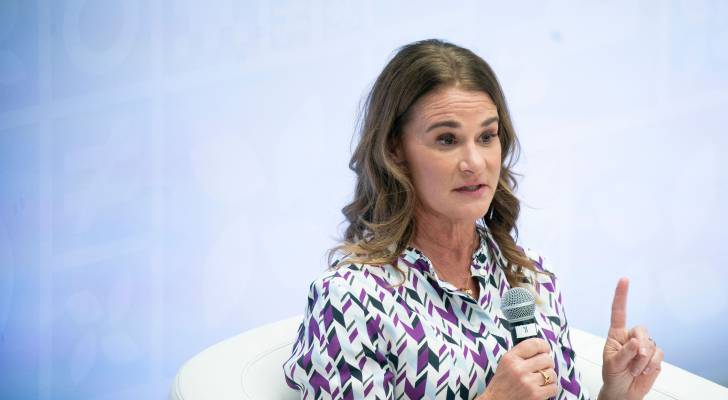Melinda French Gates speaks onstage at an event in the spring.
With an estimated net worth of US$29.3 billion, Melinda French Gates can easily bankroll her daughter’s business without breaking a sweat. But at a recent summit, the billionaire philanthropist confirmed she’s not funding the new venture.
Gates didn’t say which of her two daughters she was referring to, but 22-year-old Phoebe Gates recently launched Phia, an AI-powered shopping app. “I wouldn’t put money into it,” Gates told host Amanda Davies at the Power of Women’s Sports Summit presented by e.l.f. Beauty in London.
By holding back her financial support, Gates says her daughter gets the chance to test and validate the business idea with real investors and customers. If it’s a “real business,” Gates says, the venture will eventually find people willing to back it.
Phia has already attracted outside capital. According to GeekWire, the startup has raised US$850,000, including US$100,000 from Soma Capital, a US$250,000 Stanford social entrepreneurship grant and US$500,000 from angel investors such as Kris Jenner and Desiree Gruber.
Phoebe Gates and her cofounder, Sophia Kianni, have also secured a podcast deal to promote the venture.
Phoebe’s journey offers some valuable lessons for anyone looking to start a business.
The odds will most likely be stacked against you, with the most common pitfall being that you’re building something nobody wants to pay for.
To avoid this trap, try to find relatively cheap and quick ways to validate your business idea. Pitch the idea to angel investors or industry experts to see if they would bet real money on the venture’s success.
Better yet, look for paying customers to validate your business idea before you sink too much of your own money into it.
Statistics Canada’s 2020 Survey on Financing and Growth of Small and Medium-Sized Enterprises recorded 76% of all Canadian small- and medium-sized enterprises (SMEs) used their personal finances to launch their business, and 13% relied on loans from friends or family.
The same survey also found that in 2020, 75.9% of SMEs applied for government financing, another 7.3% requested a line of credit, while 5.9% requested a business credit card to financially support their venture.
Additionally, a 2017 Competition Bureau study shows almost 50% of SMEs rely on informal financing such as personal funds or loans from friends and family, and approximately one-third turn to credit cards as a financing method.
If you’re launching something new, first think about how to attract real customers. For example, you could build a waitlist of clients who have already signalled interest in your product or service. You might also collect early deposits or presale revenue to help fund development.
Getting those early customers will take time and effort, especially in marketing, but it brings two major benefits: proving there’s real demand and creating early cash flow to support your growth.
Read more: What is the best credit card in Canada? It might be the RBC® British Airways Visa Infinite, with a $1,176 first-year value. Compare it with over 140 more in 5 seconds
1. Forbes: Melinda French Gates (Sept 11, 2025)
2. Fortune: Melinda French Gates reveals she’s refusing to fund her Gen Z daughter’s startup—despite being worth nearly $31 billion by Orianna Rosa Royle (Jul 8, 2025)
3. GeekWire: Phoebe Gates launches e-commerce startup — here’s what her famous parents think by Kurt Schlosser (Apr 25, 2025)
4. Statistics Canada: Survey on Financing and Growth of Small and Medium Enterprises, 2020 (Mar 2, 2022)
5. Government of Canada: Technology-led innovation in the Canadian financial services sector (Dec 4, 2017)
This article provides information only and should not be construed as advice. It is provided without warranty of any kind.

